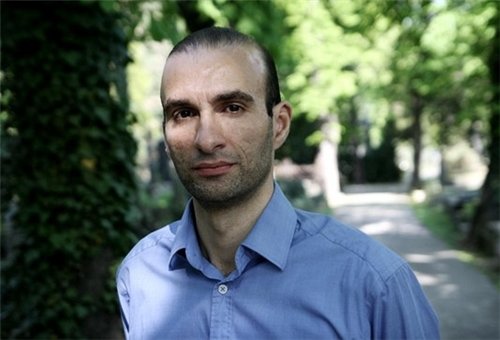U.S. will never tolerate independent countries: Adib-Moghaddam

TEHRAN - Commenting on the U.S. policy towards Venezuela, Professor Arshin Adib-Moghaddam says This has been the aim of successive U.S. governments to roll back the Boliviarian revolution that is the paradigm of independence for Latin America.
The U.S. President Donald Trump couple of weeks ago announced that he is recognizing Venezuelan opposition leader Juan Guaido as the legitimate president of Venezuela.
Trump also urged other governments to recognize Guaido, adding that he "will continue to use the full weight of United States economic and diplomatic power to press for the restoration of Venezuelan democracy."
Recent developments in Venezuela was discussed with Professor Arshin Adib-Moghaddam, Chair of the Centre for Iranian Studies at the London Middle East Institute.
Here is the full text of our interview with him:
Q: How do you see the U.S. role in creating economic crisis in Venezuela?
A: There are several factors to be considered, but the most important one is the price of oil. The Trump administration lobbied Saudi Arabia very hard to keep the price of oil down, not least to put pressure on countries such as Iran and Venezuela. The Venezuelan economy is largely dependent on oil. After years of social empowerment programs instituted by Hugo Chavez, the government simply ran out of money. The Trump administration intensified its economic war against Venezuelans when it sanctions its economy at the height of the crisis. It is ironic, given that this President has used the most disgraceful and brute profanities to describe Mexicans and other Latin Americans, whom he intends to keep out of the United States by building a wall, which is a good metaphor for the closed-mindedness of this administration, certainly the most uneducated one in the history of the country.
Q: What are the reasons behind the U.S. hostile policy towards Maduro's government? And what is the importance of the country for the U.S. foreign policy?
A: At the heart of the stand-off is a politico-ideological factor, as the deep structure of world politics is constituted by a war of ideas. This is the trigger that makes everything else possible, i.e. when you can subvert the ideational system of a country and re-code its institutions and political culture in accordance with what can be safely called a paradigm of dominance and one-sided hegemony, then the results are long term and strategic. This has been the aim of successive U.S. governments, i.e. to roll back the Bolivarian revolution that is the paradigm of independence for Latin America which grew out of the Cuban revolution and which is hinged upon a rich and deep political culture, from Simon Bolivar to the legendary Cuban poet Jose Marti. This is very similar to the independence drive that emerged out of the Iranian revolution and it explains the hostility of the U.S. state to Iran. The similar calculus works for Venezuela and the rest of free and independent Latin America. The message is clear: The U.S. state will not tolerate independence, even when Venezuela continues to supply the United States with oil.
Q: How do you see the possibility of the U.S. military intervention in the country?
A: This is the fascinating and pivotal part that U.S. decision-makers don’t seem to grasp: The world order has radically changed and the U.S. is only one among many players. There is Russia, which has made it clear that any military intervention in Venezuela would provoke a response from Moscow. There is China which would easily veto any UNSC resolutions endangering the sovereignty and territorial integrity of Venezuela. And there is Turkey, the close NATO ally of the United States which has reconfirmed the legitimacy of Nicola Maduro in strict opposition to the Trump administration. So there is not much the United States can do in terms of inciting a coup d’etat or a military intervention, exactly because of that multipolar world order which is distinctly non-American these days. The country and its subservient allies have been on the wrong side of history too many times, in Iraq, in Syria, In Lebanon in East Asia, in Latin America etc.
Q: The U.S. has recognized the parliament's head as the country's president. Is this leagal based on international law and norms?
A: The Trump administration has repeatedly contravened international law and this is another example. This President adheres to the law of anarchy, kill or be killed, a distinctly aggressive mentality that is devoid of diplomatic acumen and cultural empathy. President Nicolas Maduro has been elected as the President of Venezuela. Democracy requires patience. Venezuelans will have the opportunity to change their government after the next elections. It is another tragic irony that the self-proclaimed “leader of the free world” once again betrays all the ideals that it trumpets to the rest of the world with such cacophonic and annoying hysteria that it lacks any semblance with reason and rationality.

Leave a Comment